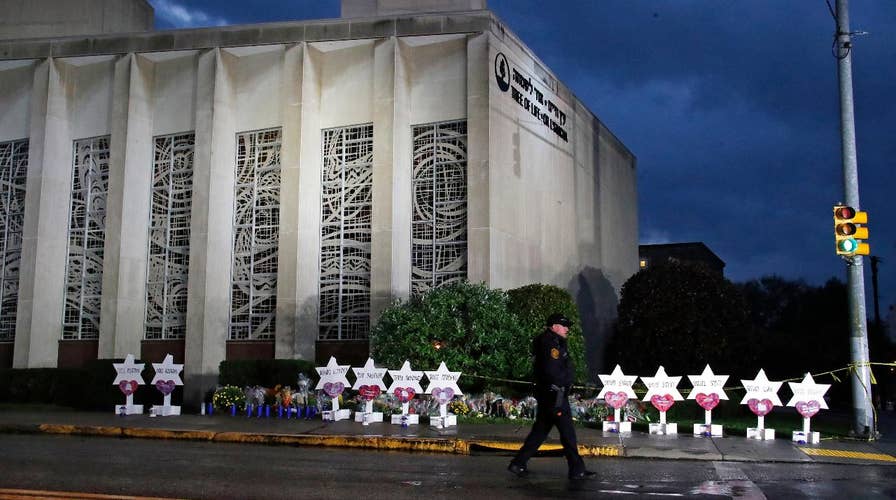Families of the 11 Jews murdered in a Pittsburgh synagogue Saturday are preparing to bury their loved ones this week and begin the traditional Jewish mourning period, known as shivah. But in many ways, to be a Jew is to be a mourner.
Sometimes it seems that Jewish history consists of endless attacks on our people, interrupted by occasional, all too brief bouts of freedom, peace, and joy.
Consider the last 2,800 years: The destruction of the two great Temples in Jerusalem. The siege of Baghdad. The Inquisition. The recurring expulsion or mass murder of Jews in practically every city in medieval Europe. The Russian pogroms. The Holocaust. The Munich Olympics. Entebbe. Terrorism.
And now, Pittsburgh.
Of course, mourning is not the only thing we do. We live and love, marry and raise children, educate our children and contribute to society, and seek to make our communities and our world better for our having been here.
And we are certainly the only people to regain their homeland nearly 2,000 years after having lost it. So all is not sackcloth and ashes.
We never stop mourning, but we never stop living, either.
The central tenet of Jewish faith is the belief that God is one. When we recite the Shema prayer, reaffirming God’s oneness, it is our tradition to cover our eyes. Why? Most likely so that we can focus on the meaning of the words, drawn from the book of Deuteronomy. But Rabbi Alter Tenenbaum, Of the Chabad of Irvine synagogue quoting the Lubavitcher Rebbe, offers a different explanation. Rabbi Tenenbaum says, “We cover our eyes because sometimes we just cannot look.”
This is one of those moments.
So how can Jews pray to a God who permits such evil? And how can Jews accept that tragedy is a part of not just our past but our present as well?
The late Rabbi Yaakov Elman taught a Talmudic explanation: when the world is in a state of spiritual disorder, the innocent suffer along with the guilty. In other words, don’t expect justice in an unjust world.
Or to put it another way, the existence of tragedy does not disprove the existence of God.
In the Passover Haggadah, we read, “In every generation, they rise up against us to annihilate us.” Maybe that sounds like paranoia, but as Henry Kissinger once said, “Even the paranoid have real enemies.”
I had my own personal aha moment just a few months ago, when I began to say Kaddish, the Aramaic prayer for the dead, for my great uncle, a Holocaust hero and survivor, who had passed away at age 97.
I have the good fortune to have turned 60 with my parents still alive, so I had never said Kaddish before. The first time I positioned myself in the synagogue to say those ancient words, a wave of awareness swept over me. So this is what we are, we Jews. I realized. This is what we do. We mourn.
To be a Jew is to feel the pain of every single other Jew, and all of us are mourners right now. As a society, we can legislate against hate crimes but we cannot do away with hatred. The same kind of murderous insanity leads to the deaths of innocent people in a South Carolina church, a Colorado movie theater, a Florida school, a Las Vegas concert venue, and now, in a Pittsburgh synagogue.
Perhaps the difference between tragedy befalling Jews and everyone else is that when it happens, we saw it coming. We’ve seen this movie before. Too many times. As a result, we aren’t surprised when these things happen. Shocked, but not surprised.
And yet, while individually we are vulnerable, collectively, we are indestructible. We Jews are old pros at grief and loss. We will mourn our dead, we will say Kaddish for them, and we will go on.
We never stop mourning, but we never stop living, either. And that’s the secret of Jewish survival.





















